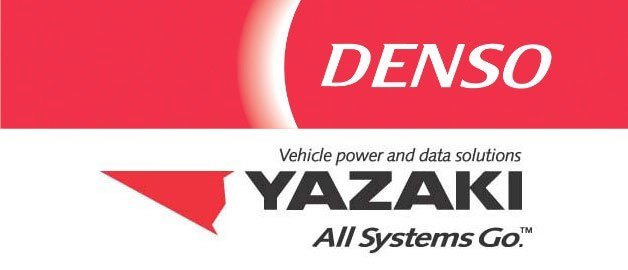Two Japanese Suppliers Plead Guilty for Bid-Fixing, will Pay Record Fines

Japan's Denso Corp., which supplies major automakers worldwide and is a member of the Toyota Group, and Yazaki Corp. last week joined Furukawa Electric Co. in pleading guilty in North America to bid-rigging.
All three suppliers will pay hefty fines. Seven Yazaki and Furukawa middle managers - all Japanese nationals - face up to two years' jail time in the United States.
The collusion on prices and contracts - where you agree to let me have customer A's business and I let you have customer B's - is under attack, and not just by the U.S. Department of Justice. Japanese authorities also have significantly stepped up enforcement.
A newly invigorated antitrust watchdog in Japan is investigating collusion on prices and other activities that have long been illegal in the United States and elsewhere. Japanese suppliers no longer can take advantage of lax regulators at home to build a strong base from which to launch their overseas operations.
The crackdown by Japan's antitrust authorities, which gained momentum last year, marks a major shift toward international antitrust standards and away from Japan's old-school collusive practices.
"Regulation of antitrust issues here is getting stricter," says Kohei Takahashi, an auto analyst at JPMorgan Securities in Tokyo. He says the tougher antitrust stance is prompting a debate over the difference "between Japan's traditional pricing system and global antitrust standards."
Moreover, the Japanese investigations have spread to components that have not yet been part of any prosecutions in the United States: windshield wipers, radiators, engine starters, alternators and bearings. It hasn't been disclosed whether the U.S. Justice Department also is investigating those parts, but the assumption has been that Japanese, U.S. and European prosecutors are sharing information.
Regulators also have contacted American and European auto suppliers as part of the investigation. Japanese and U.S. regulators launched their investigations into the wire harness fixing at the same time in the winter of 2010.
Working together
Kazuhiko Takeshima, chairman of Japan's Fair Trade Commission, says such close coordination with overseas counterparts is key in the age of globalization: "To address international cases like above, it is indispensable to establish close cooperation with the overseas competition authorities."
Consider these recent actions by Japan's Fair Trade Commission:
- On Jan. 19, it fined Yazaki ¥9.6 billion, or about $125.8 million; Sumitomo Electric Industries Ltd. $27.5 million; and Fujikura Electric Co. $14.4 million for colluding in electric wire pricing. Another company, Furukawa Electric Co., admitted to helping rig bids but avoided any fine because it had provided the tip that launched the investigation.
- In July, the commission began investigating four bearing manufacturers on similar suspicions of price fixing.
- Also in July, it raided the offices of Denso and six other Japanese parts companies as part of a wider investigation into suspected price fixing related to windshield wipers, radiators, engine starters and alternators that may stretch back as far as 2002.
Also raided: Mitsubishi Electric Corp., Hitachi Automotive Systems Ltd., Calsonic Kansei Corp., Mitsuba Corp., T.RAD Co. and Denso subsidiary Asmo Co.
The commission is newly energized. Japan overhauled its antitrust act in 2005 and again in 2009 to broaden the scope of violations and increase penalties.
The most recent change took effect in January 2010. The number of the commission's investigators nearly doubled to 452 in 2011 from 263 in 2000.
As a result, the amount of penalties levied by the commission against bid rigging and cartels across all industries has exploded over the past decade, reaching $946.1 million in 2010 vs. just $28.7 million in 2001.
This is a major change in the commission's behavior.
Michael Smitka, an economics professor and specialist in Japanese auto-industry labor economics at Washington and Lee University, says the Fair Trade Commission was largely toothless before the laws were changed.
"They'd have occasional campaigns to get someone to give them a complaint so they could justify their existence," says Smitka, who is also a judge for the Automotive News PACE Awards, which recognize automotive suppliers' innovations.
Most of the commission's actions were prompted by "small businesses griping about late payments" from big-business customers and were not related to antitrust actions, he says.
The increased scrutiny in Japan comes as Japanese suppliers struggle to adjust to a new environment of competitive bidding and global procurement. Cost-cutting carmakers are looking beyond their traditional keiretsu partners.
Traditionally, Japan's automakers worked closely with a core group of trusted suppliers that shared almost everything from parts engineering and development to costs, says JPMorgan's Takahashi. Carmakers got good prices; suppliers got steady orders.
But it began to unravel a little more than a decade ago, when Nissan Motor Co., then on the brink of bankruptcy, began looking outside its keiretsu system of go-to suppliers for lowest bidders.
Japanese automakers have largely watched silently as their suppliers get snagged. On one hand, they don't want to be gouged on parts prices. But, Takahashi says, they are so intimately involved in co-developing parts, they are well aware of pricing policies to begin with.
Toyota Motor Corp., which owns 23 % of Denso, declined to say how much financial damage it may have incurred from the price fixing. But it didn't issue a statement of blanket support for its supplier, either.
"Complying with the law is a fundamental prerequisite for any supplier to conduct business with Toyota," spokeswoman Amiko Tomita said. "If the companies subject to this announcement violated antitrust laws, then we see this as a serious issue."
Related News


